At a moment when everything Leonardo DiCaprio did counted as news, a team-up with Martin Scorsese naturally made headlines. Some of the stories beneath those headlines helped explain why he needed to work with someone like Scorsese — he wanted to have the sort of career he envisioned for himself.
“Pretty boy Leonardo DiCaprio is set to play a tough guy in his next films,” gossip columnists George Rush and Joanna Molloy wrote in their New York Daily News column when word got out that Scorsese had cast him in his next film, Gangs of New York, in 1999. It wasn’t hard to hear the scoffing behind the phrasing. What’s a teen idol like Leonardo DiCaprio doing in a Scorsese movie?
DiCaprio was still trying to find his way after Titanic and the glaring spotlight that followed that film’s unprecedented success didn’t always make that easy. The Man in the Iron Mask, his Titanic follow-up, had been a success, albeit on a more modest scale, but DiCaprio didn’t want to be the kind of movie star that leaped from blockbuster to blockbuster. He tweaked his image by playing an unpleasant version of himself in Woody Allen’s 1998 film Celebrity and attempted to stretch out with the 2000 film The Beach, a dark thriller directed by Danny Boyle working from an Alex Garland novel. After that film earned mixed reviews, it felt like DiCaprio’s star might be fading.
Scorsese helped change that, but it’s fair to say that he needed DiCaprio as much as DiCaprio needed him, at least when it came to getting his long-unrealized dream project made. Scorsese had been attempting to make Gangs since the late-’70s, but the budget needed for a sprawling film set in 19th-century New York kept getting in the way. And commercially, Scorsese wasn’t coming off a hot streak in the late-’90s after Kundun and Bringing Out the Dead. But DiCaprio’s name helped open doors.
Thus began the second great ongoing star collaboration of Scorsese’s career following the eight films he’d made with Robert De Niro up to that point. However unlikely it seemed at the time, it’s proven to be an enduring partnership, resulting in five films to date with another, Killers of the Flower Moon, set to arrive next year. And, for a time, it even looked like Scorsese’s career could be divided into De Niro and DiCaprio phases, though that ended with the De Niro reunion The Irishman. (Killers of the Flower Moon will find De Niro, DiCaprio, and Scorsese collaborating together for the first time — not counting a 2015 promotional short called “The Audition.”)
It’s an extensive enough body of work to call for a ranking. So, with the caveat that all five DiCaprio/Scorsese collaborations are pretty terrific, let’s try to put this collection of films about crime, gangsters, and haunted men in an order that makes sense.
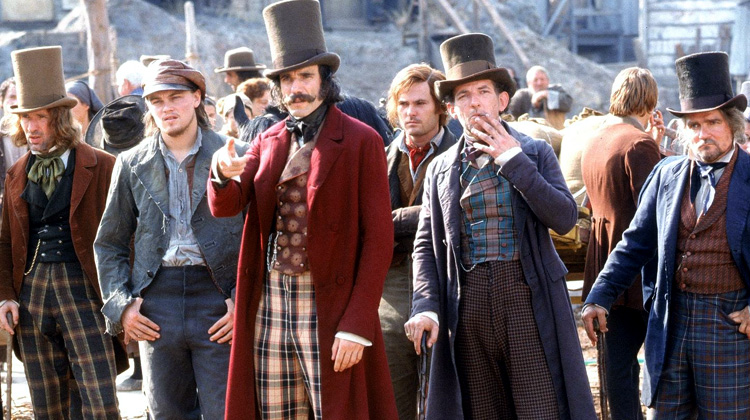
5. Gangs of New York (2002)
In terms of pure quality Gangs of New York might deserve to rank a little higher on this list. But if we’re focusing on the DiCaprio-ness of these movies it’s the weakest entry. Not that DiCaprio is bad in Gangs of New York. He’s quite good. But there aren’t many moments in which his work elevates the film. Admittedly, he has considerable competition, both because of the sheer magnitude of the production and because of Daniel Day Lewis’s incredible work as the monstrous Bill the Butcher, the sort of performance that can dwarf everyone else on-screen.
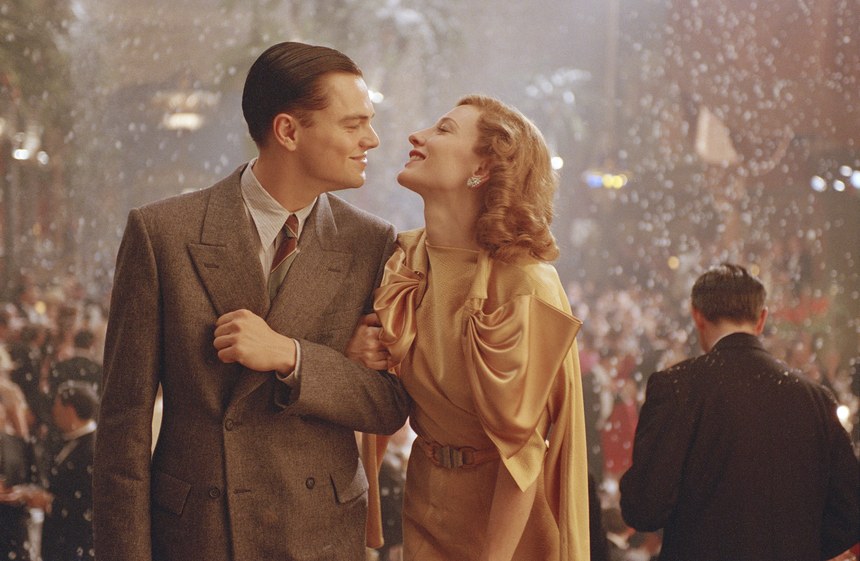
4. The Aviator (2004)
Howard Hughes — the business magnate, film producer, and, yes, aviator who became an international celebrity before retreating into seclusion — had been portrayed on film before The Aviator. Jason Robards played him in his late-in-life Vegas recluse phase in Jonathan Demme’s Melvin & Howard and Terry O’Quinn brought him to life as a patriotic philanthropist in The Rocketeer. But this biopic attempts to go deeper than previous efforts, primarily following Hughes (DiCaprio) during an eventful stretch between 1927 and 1947 during which he branched out into the movie business and attempted to revolutionize flight with the enormous all-wood transport plane the Spruce Goose. DiCaprio delivers a finely calibrated performance, drawing on his movie star charisma to depict Hughes at his most dashing while slowly revealing the cracks in his psyche. The film’s final scene is one of the most haunting in DiCaprio and Scorsese’s collaborative work.
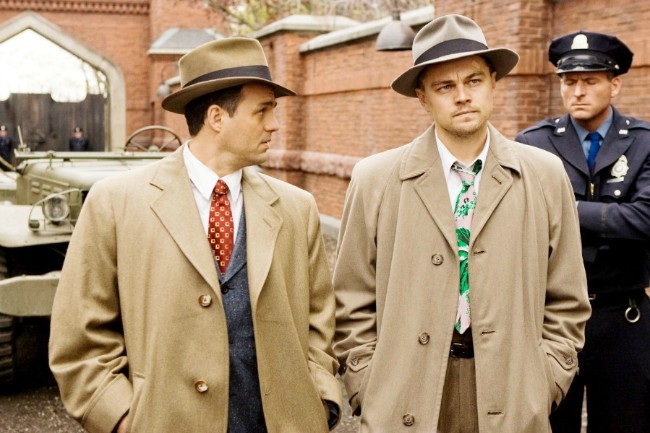
3. Shutter Island (2010)
Speaking of cracked psyches… actually, it’s best not to reveal too much about why DiCaprio’s work in this psychological thriller is so devastating. For those who haven’t seen it, it’s best just to go along for the dark ride. Adapted from a Dennis Lehane novel, the film stars DiCaprio as Teddy Daniels, a U.S. Marshal who travels to an island hospital for the criminally insane in search of a murderer who’s disappeared. Once there he finds himself troubled by visions from his own past, including his traumatic World War II service. A horror film at heart, Shutter Island finds Scorsese drawing on everything from Val Lewton movies to then-recent Japanese and Korean shockers to create a film that sets an unsettling mood with its opening moments and never eases up.
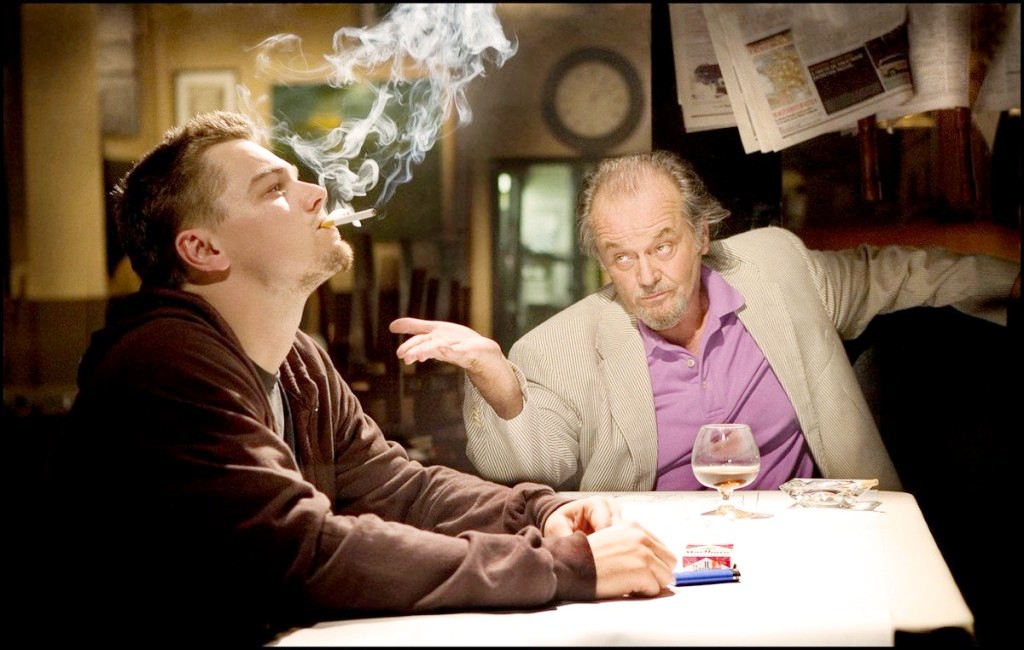
2. The Departed (2006)
Scorsese finally won a Best Picture Oscar for this remake of Hong Kong filmmakers Andy Lau and Alan Mak’s 2002 film Infernal Affairs about a gangster posing as a cop and a cop posing as a gangster. Playing opposite Matt Damon, DiCaprio stars as Billy Costigan, a Massachusetts state trooper troubled by the requirements of living as an outlaw in the service of a pitiless mob boss played by Jack Nicholson. Scorsese has specialized in men tormented by the desire to do good and the appeal of sin since Who’s That Knocking at My Door? and DiCaprio’s performance gives the director another in a long line of unforgettable tormented heroes.
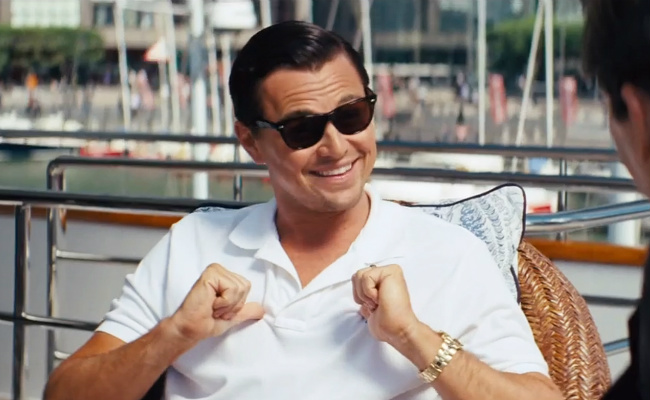
1. The Wolf of Wall Street (2013)
In recounting the career of crooked stockbroker Jordan Belfort who conned his way into building an empire, Scorsese holds nothing back. It’s a vision of excess that delights in cinematic excess of its own, whether depicting office orgies or a quaalude binge gone horribly awry. It’s a funny film that never loses sight of the moral consequences of the story it’s telling. DiCaprio’s performance is in lockstep with his director’s demands, playing Belfort as a charmer who comes to believe himself to be invincible — and seemingly with good reason. He’s a con man who’s so good he even cons those watching the movie as we watch him pile on lie upon lie. Even the final act comeuppance suggests his brand of bullshittery always finds a way to surface in new forms.







